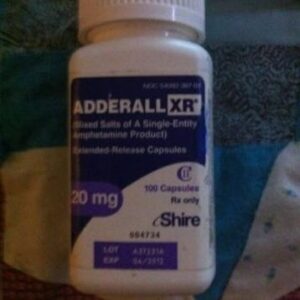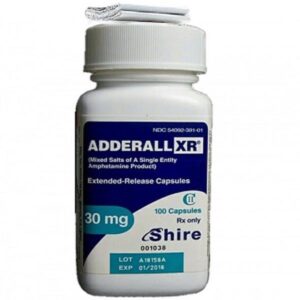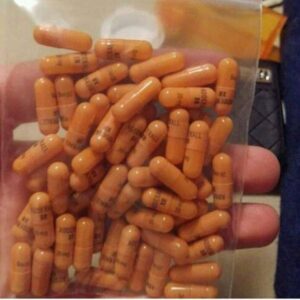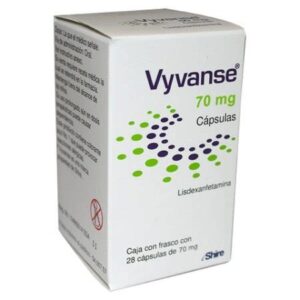Buy ADHD Online
Understanding ADHD Medication: Pills for Managing Symptoms
Attention-Deficit/Hyperactivity Disorder (ADHD) is a neurodevelopmental condition that often requires a multifaceted approach for effective management. One of the primary treatments for ADHD involves medication, commonly administered in the form of pills. These medications aim to regulate neurotransmitters in the brain, enhancing focus, impulse control, and overall executive functioning. Here’s an overview of ADHD pills, including their types, mechanisms, and considerations:
Types of ADHD Medication:
1. Stimulants: Stimulant medications are the most commonly prescribed and widely used treatment for ADHD. They work by increasing the levels of neurotransmitters dopamine and norepinephrine in the brain, which play key roles in attention, motivation, and impulse control. Examples include:
– Methylphenidate: Sold under various brand names such as Ritalin, Concerta, and Daytrana.
– Amphetamines: Examples include Adderall, Vyvanse, and Dexedrine.
2. Non-Stimulants: For individuals who do not respond well to stimulant medications or experience intolerable side effects, non-stimulant medications may be prescribed. These medications typically affect different neurotransmitters or have alternative mechanisms of action. Examples include:
– Atomoxetine (Strattera): A selective norepinephrine reuptake inhibitor (SNRI) that increases the levels of norepinephrine in the brain.
– Guanfacine (Intuniv) and Clonidine (Kapvay): Alpha-2 adrenergic agonists that affect norepinephrine receptors in the brain.
Buy ADHD Online.
Mechanism of Action:
– Stimulants: These medications work by blocking the reuptake of dopamine and norepinephrine, increasing their availability in the brain. This helps improve attention, focus, and impulse control.
– Non-Stimulants: Non-stimulant medications often target different neurotransmitters or receptors. For example, atomoxetine increases norepinephrine levels by inhibiting its reuptake, while guanfacine and clonidine act on alpha-2 adrenergic receptors to modulate norepinephrine release.
Considerations and Side Effects:
While ADHD medications can be highly effective in managing symptoms, it’s essential to consider potential side effects and individual response. Common side effects may include:
– Stimulants: Insomnia, decreased appetite, increased heart rate, and potential for abuse or dependence.
– Non-Stimulants: Drowsiness, fatigue, dizziness, and gastrointestinal disturbances.
It’s crucial for individuals taking ADHD medication to be closely monitored by healthcare professionals to adjust dosage and manage side effects effectively. Additionally, there may be considerations regarding the risk of misuse or diversion, especially with stimulant medications.
Comprehensive Treatment Approach:
Medication is often just one component of a comprehensive treatment plan for ADHD. Behavioral therapy, educational support, lifestyle modifications, and support from family and peers are also crucial for managing symptoms and improving overall functioning.
Conclusion:
ADHD pills play a significant role in the management of symptoms associated with Attention-Deficit/Hyperactivity Disorder. By understanding the different types of medications, their mechanisms of action, and potential side effects, individuals with ADHD and their caregivers can make informed decisions in collaboration with healthcare professionals to develop personalized treatment plans that address their unique needs and optimize their quality of life.
ADHD
$330.00
ADHD
$400.00
ADHD
$280.00
$310.00
Buy ADHD Online




